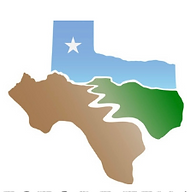Wildlife management
Wildlife management Plans
Comprehensive five year plan outlining the landowner’s management goals for the property following the TPWD guidelines. Detailed instructions & maps are included outlining each activity. Includes an on-site consultation visit and 1-D-1w Application. All plans are completed by a professional wildlife biologist.
Contact for pricing
1-D-1W Application
Form to move from 1-d-1 agricultural valuation to 1-d-1W for wildlife management.
Included in Wildlife Management Plan when paired together
Annual Reports
This required report contains all documentation for wildlife activities completed during a calendar year, and is typically due to the CAD by April of the subsequent year.
Price includes compiling all data from the landowner & contractors into the report.
Contact for pricing
Monitoring Visits
Visits to document & service all wildlife related product, such as nesting boxes, feeders, water features, etc., made available for inclusion in the Annual Report to show evidence of functionality during the year. Includes a report with photos, GPS data, and a map.
Contact for pricing
Wildlife Management Practices

Brush Management
Removal of invasive brush by chemical or mechanical
methods. Cactus, mesquite, & cedar are the most common
species treated.

Feral Hog Trapping
Remotely-triggered, pen-style trap utilized to remove whole sounders of feral hogs from the property.
(Only offered in Mason and Llano County)

Feeder installs
& refills
Install & maintain a large capacity supplemental food source.
Examples include hanging bird feeders, turkeyfeeder, or protein feeder.

Native reseeding & revegetation
Restoration of native flora through various the techniques such as reseeding with a seed drill or planting trees and shrubs. These type of activities can satisfy a number of different wildlife practices.

Rainwater collection systems
Install a rainwater collection system that feeds a wildlife waterer. The self-contained unit provides a low- maintenance option for locations where other water sources aren’t available.
Three unit sizes available:
120 gallon, 305 gallon, 550 gallon

Nesting Boxes
Install nesting boxes for cavity dwelling species.

Imported red fire ant control
Surveying and treatment for Imported Red Fire Ants (IRFA) with an approved granular insecticide by way of transects and individual mound treatment. Includes report with photos and map showing GPS tracks of area treated.

Trough modifications
Convert existing livestock troughs for wildlife qualification by installing custom built ramps to create access for all classes of animals.

STRIP MOWING
A tractor & shredder are used to create varied habitat structure and encourage diverse regrowth by mowing open areas in an irregular, mosaic pattern.

WILDLIFE SURVEYS
Various wildlife survey techniques such as Breeding Bird Surveys and Remote Camera Surveys utilized to meet Census activity requirements and provide landowners with documentation of difference classes of wildlife present on the property.
Includes report withsummary of data, photos, & map.
